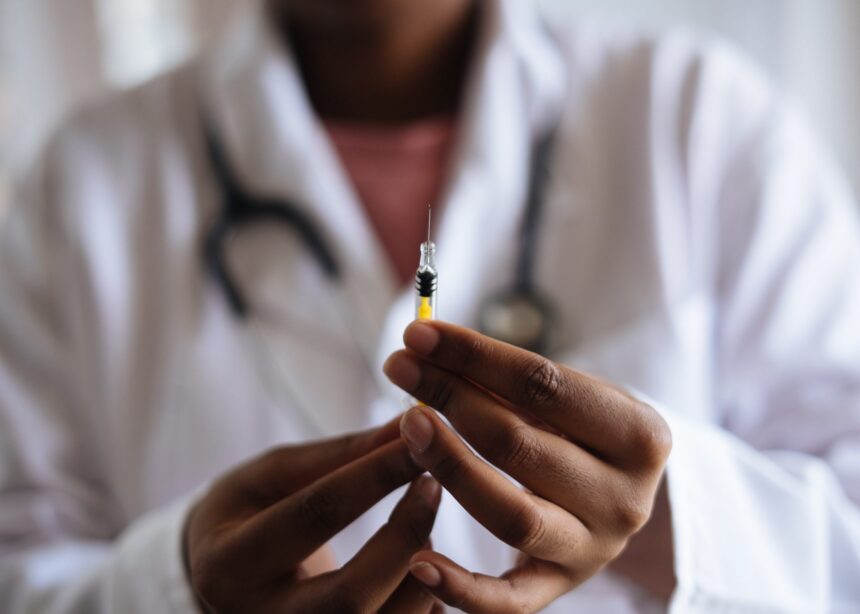This content material initially appeared on diaTribe. Republished with permission.
By Andrew Briskin
Within the seek for new and progressive methods to deal with sort 1 diabetes, researchers have appeared to develop therapies that shield or enhance the physique’s capacity to supply its personal insulin. Study concerning the fundamentals of a vaccine presently in growth and the way it might doubtlessly gradual or halt the development of sort 1 diabetes.
For many years, sort 1 diabetes therapy has centered on treating the situation, primarily with insulin. In recent times, nonetheless, therapies that concentrate on the immune system (immunotherapies) have gained increasingly more traction of their potential to delay or forestall sort 1.
You will have heard a few new drug referred to as Tzield (teplizumab), the primary – and to date solely therapy – therapy to delay the onset of sort 1 diabetes for 2 years or extra. One other vaccine presently being studied is Diamyd, which additionally holds promise as a possible immunotherapy for sort 1.
As a reminder, sort 1 diabetes is a situation the place the physique’s immune system assaults and destroys the cells within the pancreas that produce insulin, often called beta cells. This happens due to one thing referred to as an auto-antibody. Antibodies are a part of your immune system; their function is to determine and neutralize micro organism and viruses. Auto-antibodies, nonetheless, mistakenly goal a number of of your physique’s proteins, which can injury tissues and organs. One auto-antibody usually present in folks with sort 1 diabetes targets a sort of protein often called GAD-65.
The destruction of the beta cells progresses at completely different speeds, relying on every particular person. Nevertheless, by the point sort 1 diabetes is normally recognized, roughly 80% of beta cells have been destroyed. This injury continues till the individual turns into fully depending on insulin injections.
However what if a vaccine might cease this auto-immune destruction earlier than it even happens? Enter Diamyd Medical, a Swedish biotechnology firm taking a novel method to creating a sort 1 vaccine: Diamyd.
How the vaccine works
As a result of GAD-65 is discovered within the beta cells of the pancreas, auto-antibodies towards GAD-65 acknowledge the protein and injury beta cells.
“What we need to do is re-program the immune system, particularly the way it reacts to GAD-65. It’s like a reverse, or therapeutic, vaccine,” mentioned Ulf Hannelius, CEO of Diamyd Medical. “The target is to vary the pro-inflammatory, autoimmune response to GAD-65, and to skew that to an anti-inflammatory response.”
Researchers at Diamyd are presently taking the method of injecting a small quantity of the GAD-65 protein right into a lymph node a number of occasions throughout the research (lymph nodes are small, bean-shaped constructions all through the physique that comprise among the physique’s immune cells).
The hope is that these immune cells will journey to the pancreas, encounter a beta cell with GAD-65, and as an alternative of destroying the beta cells, work to cut back the assault and protect them.
The place we’re at present
Over the previous 20 years, a number of obstacles have stood in the best way of a sort 1 vaccine, together with a trial suspended in 2011 that did not display the vaccine’s effectiveness. Since then, the corporate has made some adjustments Hannelius mentioned, together with the best way that the vaccine is run (it’s now injected straight into the lymph nodes reasonably than underneath the pores and skin). One other analysis trial was placed on a partial medical maintain within the U.S. in 2021, which was lifted in 2022.
“We haven’t made any precise change to the drug or formulation, however we now administer the vaccine on to the lymph nodes, the location the place the immune response occurs, with a a lot smaller dose,” mentioned Hannelius. “Even with the smaller dose, we at the moment are seeing a a lot stronger immune response in comparison with after we injected [just under the skin].”
Moreover, the corporate now screens for the presence of a specific gene related to a excessive danger for sort 1 diabetes. In response to Hannelius, this gene is present in as much as 40% of individuals with sort 1, with this sub-group exhibiting a very optimistic response in medical trials.
Information has been promising over the previous couple of years. In 2021, the corporate revealed outcomes from its part 2b trial, DIAGNODE-2. This research, which included 109 research individuals ages 12-24, confirmed that the vaccine improved glucose administration (as measured by time in vary) in just lately recognized research individuals in comparison with the placebo group.
In 2022, Diamyd introduced outcomes from a 14-person security research with promising leads to folks recognized with latent autoimmune diabetes in adults (LADA). Like sort 1, LADA is a type of autoimmune diabetes, however the assault on beta cells takes longer, with the prognosis normally occurring in adults.
In progress: Diamyd medical trials
Diamyd is within the midst of a brand new part 3 trial (which is presently recruiting) referred to as DIAGNODE-3. The trial is enrolling 330 individuals at 60 areas throughout the globe, together with the U.S., Czechia, Estonia, Germany, Hungary, the Netherlands, Poland, Spain, and Sweden, and plans to wrap up late 2025.
One other trial referred to as DiaPrecise was launched in 2023 to guage the protection and feasibility of Diamyd in youngsters and teenagers between ages 8-18 who carry the gene for sort 1 diabetes. The FDA just lately fast-tracked the assessment course of for this particular trial, which is a promising step ahead in a sort 1 diabetes vaccine for youngsters. This trial is presently recruiting in Sweden – right here’s how to become involved.
Generally, Diamyd represents one other effort to search out an immunotherapy that might doubtlessly delay or forestall sort 1 diabetes, and forestall issues sooner or later. Researchers proceed to work in direction of new and progressive methods to deal with sort 1 diabetes, and the Diamyd vaccine would possibly finally turn out to be a therapy choice that, not like insulin, combats the immune response that results in sort 1 diabetes.












